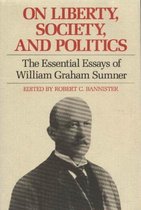Immigrants, Progressives and Eclusion Politics - The Dillingham Commission, 1900-1927 The Dillingham Commission, 1900-1927
Afbeeldingen
Sla de afbeeldingen overArtikel vergelijken
- Engels
- Hardcover
- 9780875803234
- 18 maart 2004
- 208 pagina's
Samenvatting
The "Great American Problem" at the turn of the twentieth century was immigration. In the years after the Civil War, not only had the annual numbers of immigrants skyrocketed but the demographic mix had changed. These so-called new immigrants came from eastern and southern Europe; many were Catholics or Jews. Clustered in the slums, clinging to their homeland traditions, they drew suspicion. Rumors of a papist conspiracy and a wave of anti-Semitism swept the nation as rabid nativists crusaded—sometimes violently—for the elimination of 'foreigners'.
In place of wholesale denunciation, wild theories, and impractical propositions, however, progressive reformers proposed the calm consideration of rational and practical measures. With their faith in social engineering, they believed that enlightened public policy would lead to prosperity and justice. Such was the hope of the Dillingham Commission, appointed by Congress in 1907 to investigate the immigrant problem.
In Immigrants, Progressives, and Exclusion Politics, Robert Zeidel introduces the nine members of the Dillingham Commission, created by the Immigration Act of 1907, and shadows them from day to day, in the office, on board ship, at the inspection station. With every mile they traveled through Europe, with every form that their staff completed, the commissioners meticulously gathered facts. On every page of their 41-volume report, they sought to present those facts without bias. In general, the Dillingham Commission reached positive conclusions about immigrants. While it recommended a few restrictions, it did so primarily for economic—rather than cultural or "racial"—reasons.
With the isolationist backlash after the Great War and in the face of the Red Scare, the commission saw its work hijacked. Compiled in the spirit of objectivity, the report was employed to justify purely nativist goals as the United States imposed stringent regulations limiting the number of immigrants from other countries. Prejudice trumped progressive idealism. As Zeidel demonstrates, social scientists in the 1920s learned what physicists would discover two decades later: scientists do not control the consequences of their research.
Productspecificaties
Inhoud
- Taal
- en
- Bindwijze
- Hardcover
- Oorspronkelijke releasedatum
- 18 maart 2004
- Aantal pagina's
- 208
- Illustraties
- Nee
Betrokkenen
- Hoofdauteur
- Robert F. Zeidel
- Hoofduitgeverij
- Northern Illinois University Press
Overige kenmerken
- Editie
- New title
- Extra groot lettertype
- Nee
- Product breedte
- 152 mm
- Product hoogte
- 19 mm
- Product lengte
- 229 mm
- Studieboek
- Nee
- Verpakking breedte
- 152 mm
- Verpakking hoogte
- 19 mm
- Verpakking lengte
- 229 mm
- Verpakkingsgewicht
- 499 g
EAN
- EAN
- 9780875803234
Je vindt dit artikel in
- Taal
- Engels
- Boek, ebook of luisterboek?
- Boek
- Studieboek of algemeen
- Algemene boeken
- Beschikbaarheid
- Leverbaar
Kies gewenste uitvoering
Prijsinformatie en bestellen
De prijs van dit product is 56 euro en 99 cent.- Prijs inclusief verzendkosten, verstuurd door bol
- Ophalen bij een bol afhaalpunt mogelijk
- 30 dagen bedenktijd en gratis retourneren
- Dag en nacht klantenservice
Rapporteer dit artikel
Je wilt melding doen van illegale inhoud over dit artikel:
- Ik wil melding doen als klant
- Ik wil melding doen als autoriteit of trusted flagger
- Ik wil melding doen als partner
- Ik wil melding doen als merkhouder
Geen klant, autoriteit, trusted flagger, merkhouder of partner? Gebruik dan onderstaande link om melding te doen.








